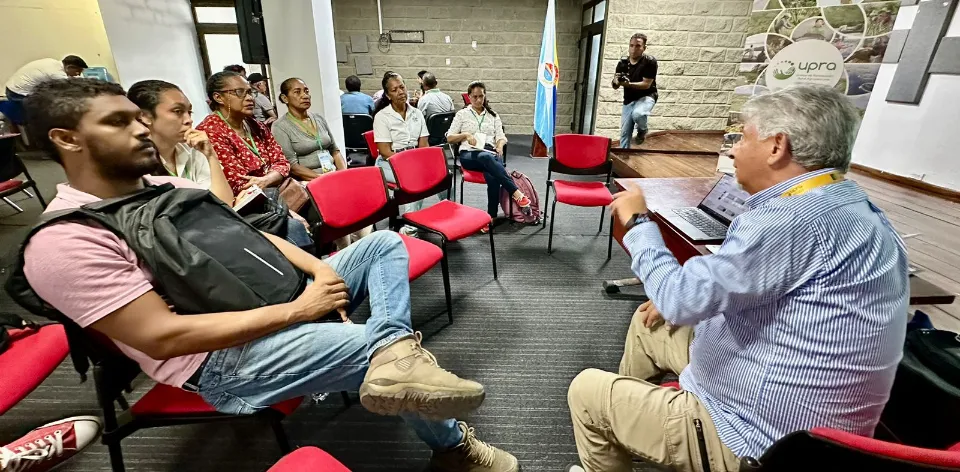 26/6/2024
26/6/2024
Breadfruit Among the Six Prioritized Productive Alternatives for Suitability Zoning in the Archipelago of San Andrés, Providencia, and Santa Catalina

Bogotá D. C., (@Minagricultura, @UPRAColombia, @claudialili76). More than 40 people, including producers, association representatives, officials from the Secretariat of Agriculture and Fisheries of the Government of San Andrés, Providencia, and Santa Catalina, agriculture promoters, representatives of the Food Security Program and Raizal organizations, entities such as ANT and SENA, participated in the socialization of the progress of the suitability zoning of productive alternatives: basket pepper, watermelon, sweet potato, plantain, cassava, and breadfruit, key to boosting the island's economy through the artisanal transformation of these products for family supply and local and national commercialization.
Regarding this process, Alexander Rodríguez Romero, Technical Director of Efficient Land Use and Land Adaptation at UPRA, stated that "these studies, conducted at a scale of 1:100,000, identify the regions of the country with the greatest potential for these activities, providing tools for planning and guiding public and private investments, and are framed in three components: physical, socio-ecosystemic, and socio-economic."
Thus, the technical team of UPRA developed the socialization of the structuring and validation of the suitability zoning components, progress, and feedback through participatory and recreational exercises.
On this occasion, the community defined the types of land use (TUT) based on their needs, prioritizing those essential for family supply, self-consumption, and commercialization.
In this regard, Lizeth Gómez Smith, Acting Secretary of Agriculture and Fisheries of the Government of San Andrés, Providencia, and Santa Catalina, highlighted that "agriculture on the island is very traditional and ancestral; the elderly are the producers, and it is important to promote this practice among the youth. For this, they need better land planning so that agriculture can develop not only locally but also nationally."

